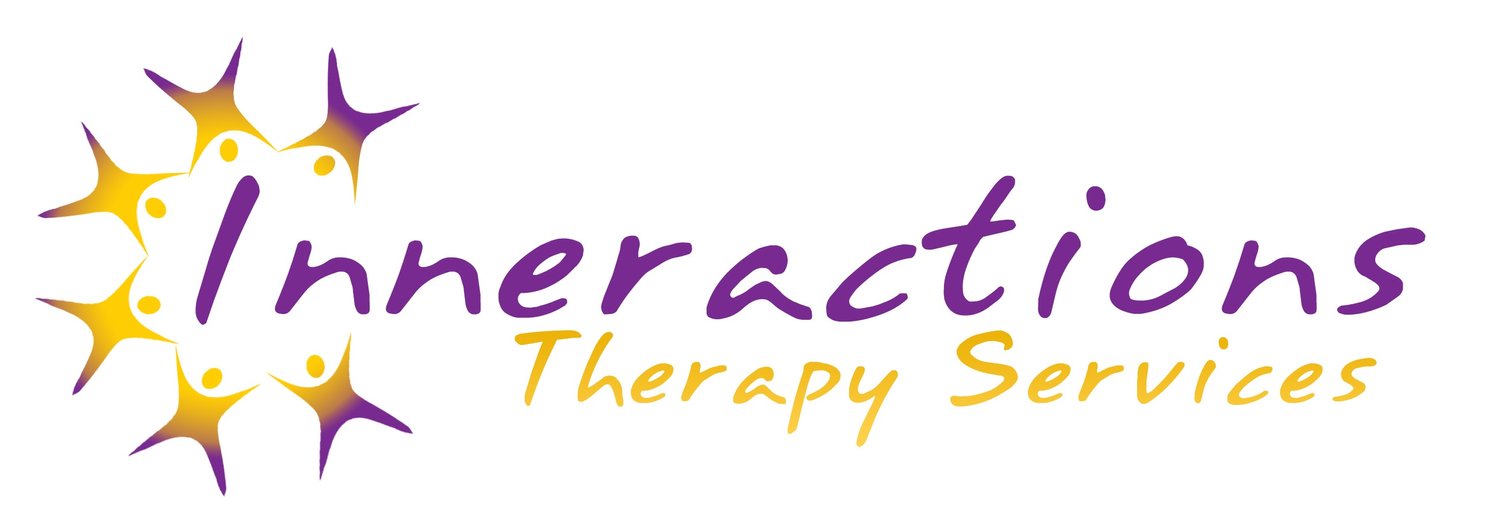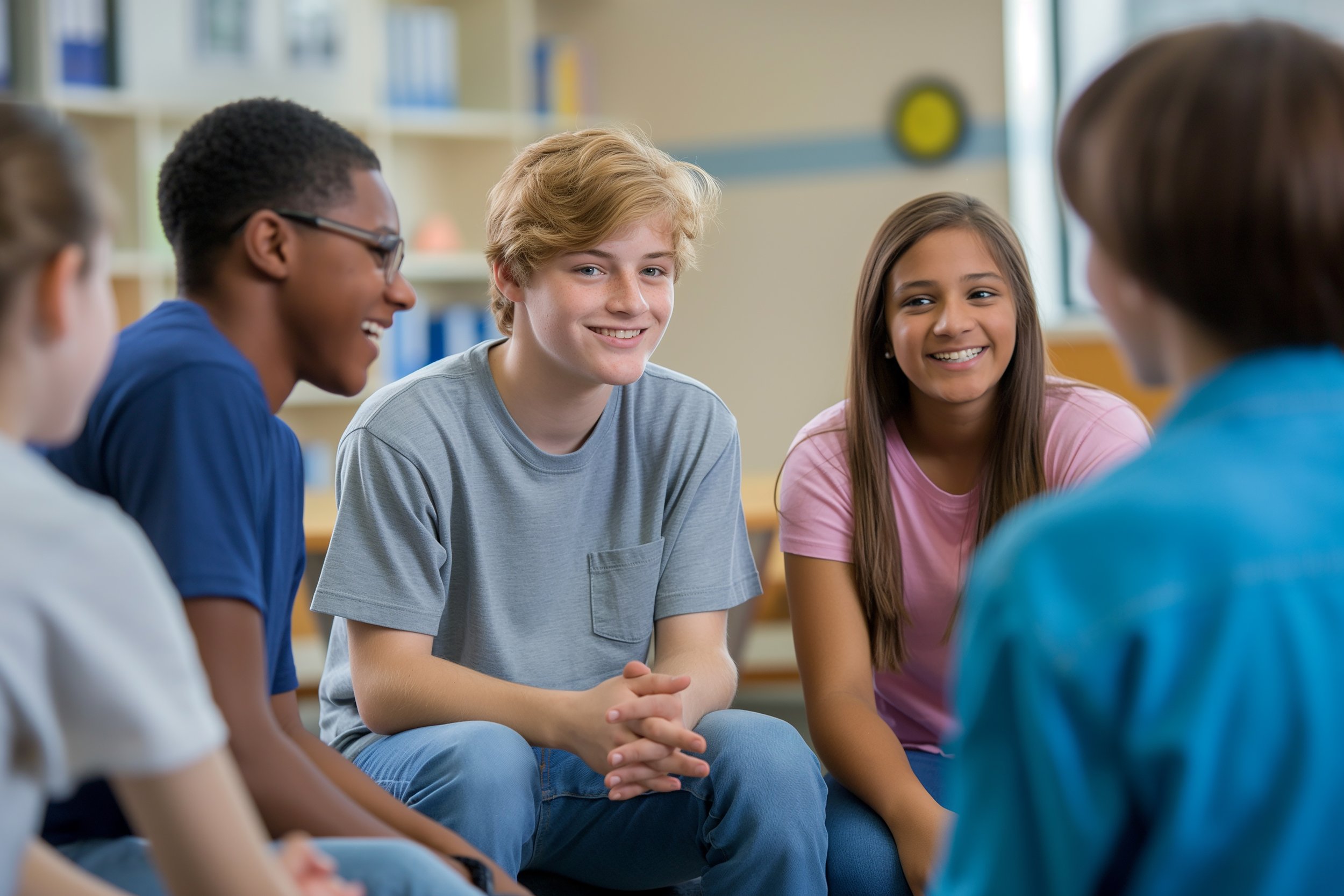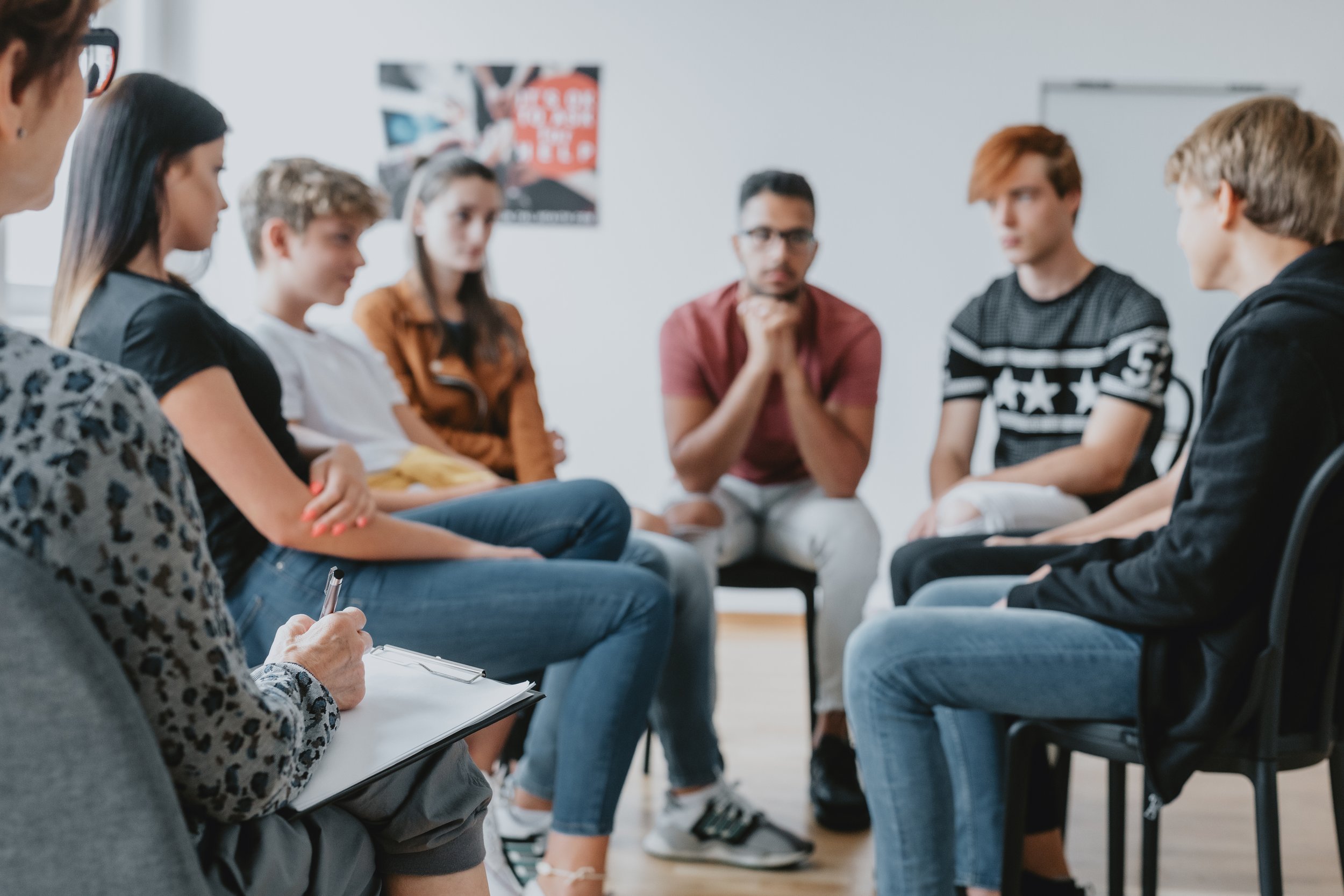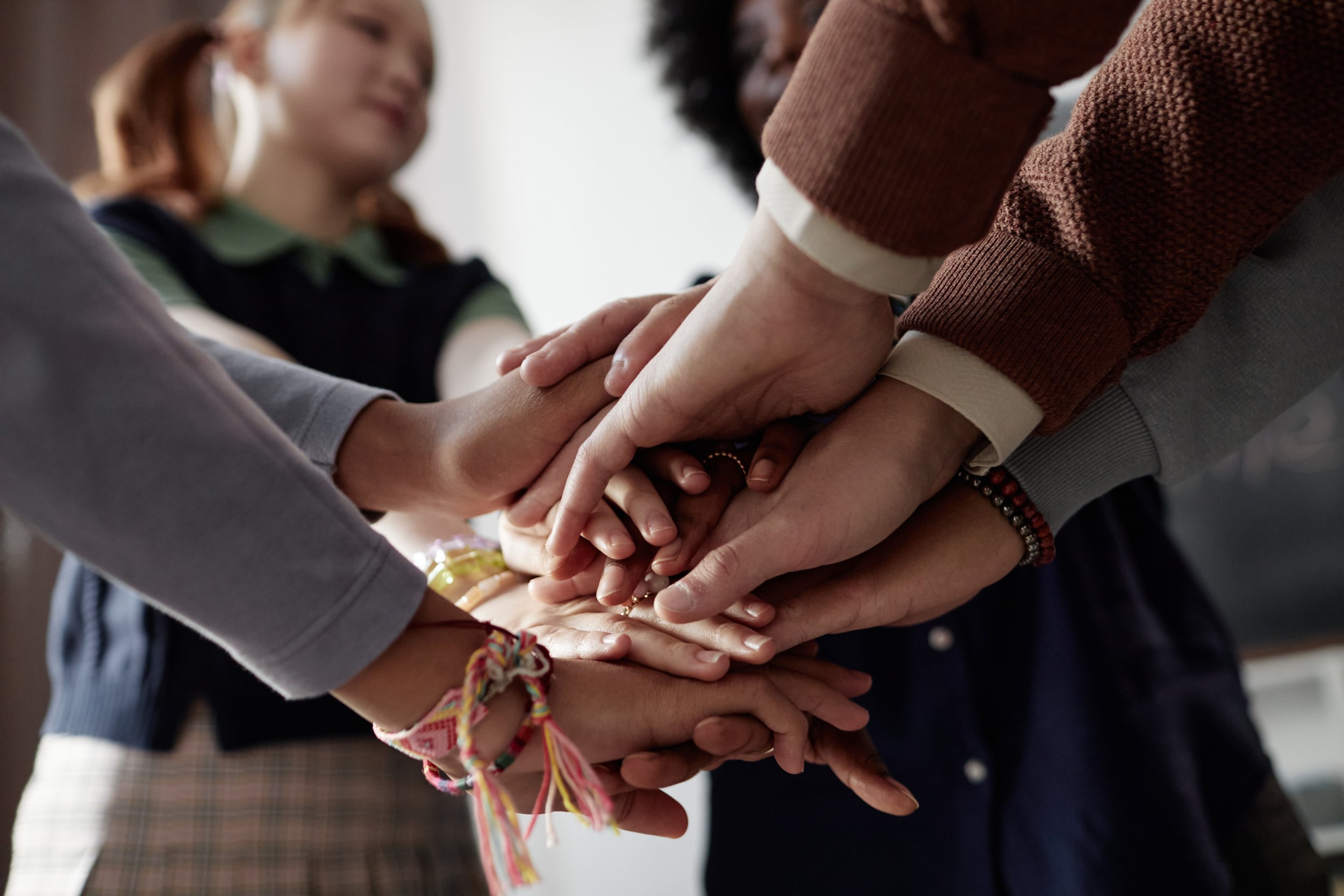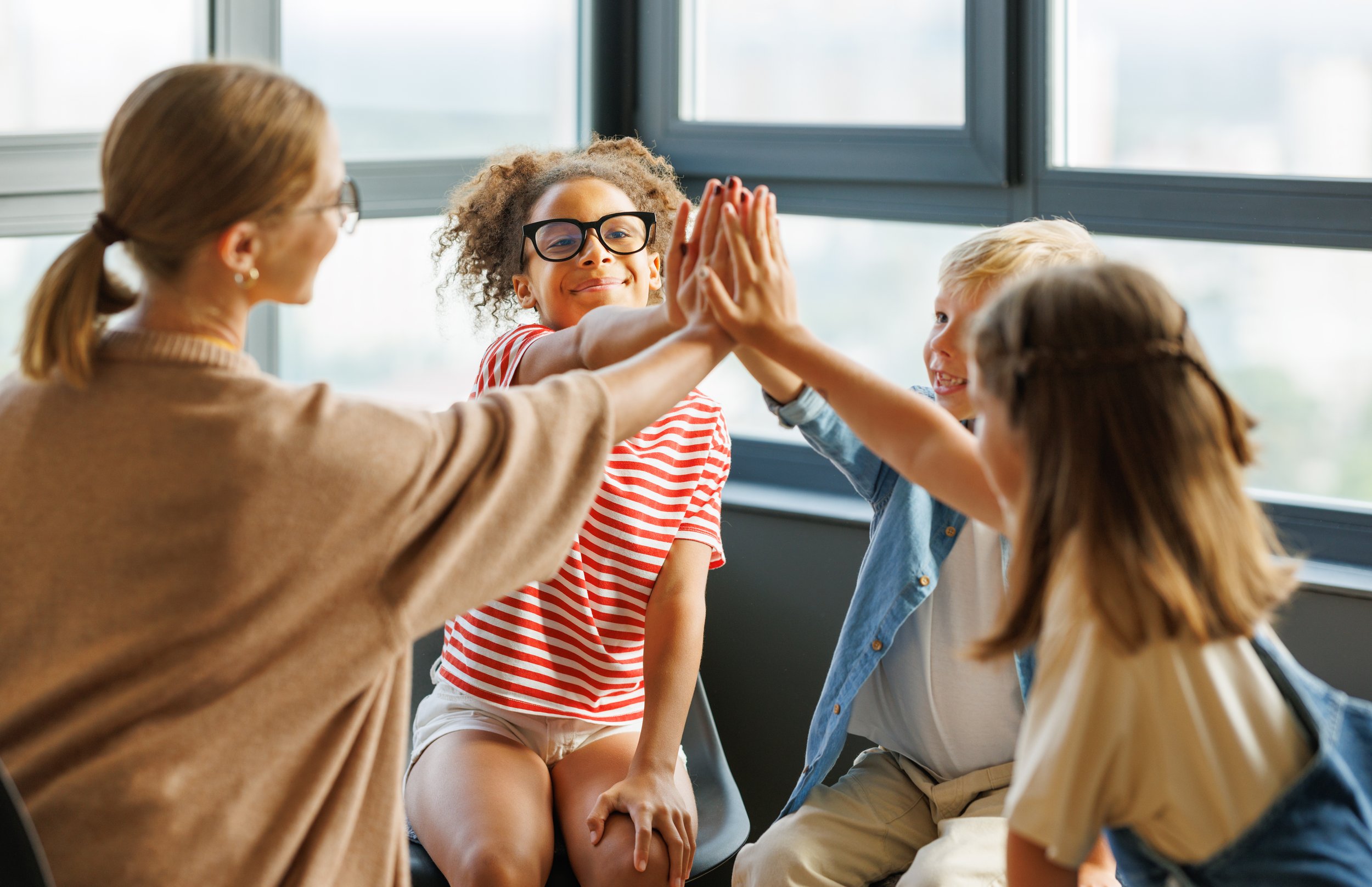
Social Skills Groups for Kids, Teens, and Adults
Build confidence, communication, and connection in a supportive and FUN, therapeutic group setting.
At Inneractions, we design social skills groups to help individuals of all ages—children, adolescents, teens, and adults develop stronger interpersonal and communication skills.
These groups offer a safe, FUN, and engaging environment where members learn to express themselves, connect with others, and navigate social situations more effectively. Social skills groups are a great way to work on how you interact with people to develop more meaningful and rewarding interactions.
What Are Social Skills Groups?
How our Social Skills Groups Work
Our social skills groups incorporate FUN collaborative experiential activities to help clients stay engaged while learning important social skills. Our staff therapists are trained to incorporate experiential learning in therapy. Whether it’s art, games, role-play, teamwork challenges, or group discussions you can expect to have fun while working toward therapeutic goals.
Our experienced staff therapists lead weekly one hour sessions and are formed by matching clients based on age, interests, therapeutic goals, and developmental level. Our team of experienced group leaders work together to form groups of three to six clients working on similar skills and goals. This way you know you or your child will be in a safe and welcoming environment with others working on similar things you are.
Social Skills Developed in Group Therapy
Conversation skills
Active listening
Emotional regulation
Sharing & turn-taking
Understanding personal space
Reading nonverbal cues
Making and maintaining friendships
Impulse control & frustration management
Cooperation and compromise
Leadership and assertiveness
Back-and-Forth Conversations
And more!
Social Skills Therapy Groups for All Ages
Group Therapy for ages 3-6
In group therapy for young children, clients participate in FUN play-based learning and early socialization. Run by staff therapists, these groups help children work on important social skills including cooperative play, turn-taking, and emotional regulation.
Staff therapists then follow up with parents to provide feedback, and give suggestions of how to reinforce lessons from group at home.
Group Therapy for Ages 7–12
In social skills group therapy for children ages seven through 12, clients engage with experiential and play based activities focused on improving social interactions with peers. Some of the skills worked on in these groups are friendship skills, working together, back and forth conversations, and other important communication skills.
Group Therapy for Teens (13–17)
As you reach your teen years themes of identity, self-esteem, and navigating peer relationships are common struggles. Our group therapy for teens helps teens explore these themes as well as build up social skills to help your teen make more meaningful connections and prepare for their adult life.
These groups are an excellent way for teens to not only learn important skills, but also to build a support system in a challenging time in their lives.
Group Therapy for Young Adults (18–25)
Young adults often struggle with social confidence, career readiness, and building their independence as an adult. Our social skills groups for young adults offer young adults an opportunity to discuss these important issues in a safe and welcoming environment.
Therapeutic RPG Social Skills Groups
Are you (or your child) a fan of tabletop games like DnD or RPG video games like Baldur’s Gate? You may be a good fit for our tabletop gaming therapy groups! These groups use tabletop RPGs similar to DnD to help you work on social skills and processing. Some examples of themes we’ve noticed are social problem solving, teamwork, processing identity, and more.
Why choose our social skills groups?
Inneractions Therapy Services has an excellent track record of social skills success over more than a decade. Our social skills groups are run by pre-licensed and fully licensed therapists with experience using evidence-based techniques and have a passion for helping clients build more meaningful connections.
From the beginning of your therapeutic journey with us, our groups are formed to meet individual goals of group members. We match you (or your child) with other people working towards similar goals. This helps build group rapport, and gives group members a supportive environment in group sessions.
Our social skills group therapy has a track record of success for clients with wide ranging diagnoses and needs. Whether you’re neurodivergent, or working through social anxiety our social skills groups can help you.
No diagnosis is required to join one of our groups, but here are just a few common diagnoses we see in our groups:
ADHD
Autism
Anxiety
Social Anxiety
Depression
OCD
How to join group therapy
1. Schedule an intake
When you reach out to us we will schedule an intake to learn more about you (or your child). In this intake we work with you to understand your history, goals, and interests.
2. Match with a group
Our team of experienced clinicians match you with the appropriate group based on age, developmental level, interests, and your therapeutic goals.
3. Create, Discover, Grow
Now it’s time for you to begin attending weekly sessions. In these sessions you’ll have the opportunity to connect with others, and learn important social skills that align with your goals.
